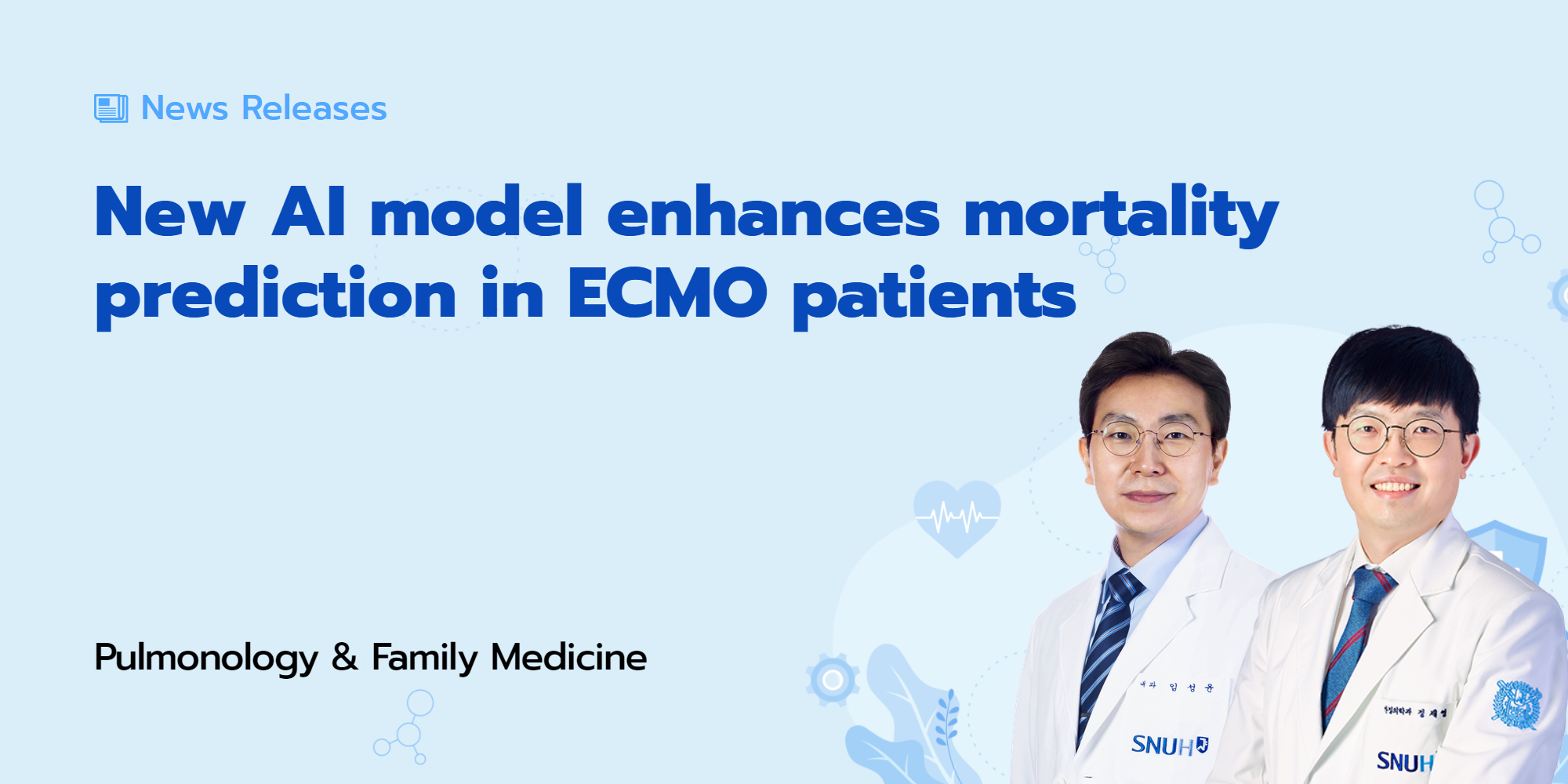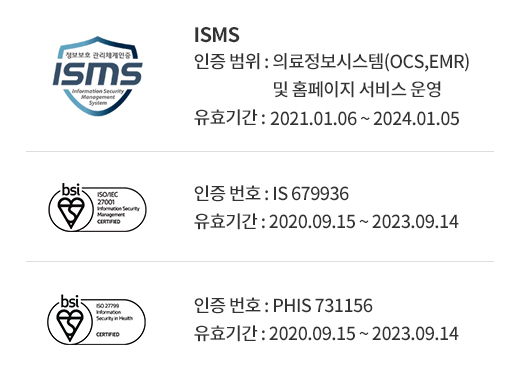New AI model enhances mortality prediction in ECMO patients

A research team at the Seoul National University Bundang Hospital (SNUBH) developed an artificial intelligence (AI) model that significantly improves the prediction of mortality rates in patients undergoing extracorporeal membrane oxygenation (ECMO), the hospital said.
호흡기내과_임성윤_교수,_가정의학과_정세영_교수,_디지털헬스케어연구사업부_이하은_연구원.jpg)
A SNUBH team, led by Professors Lim SungYoon (left) and Jung Seyoung, developed an AI model that can predict mortality rates in patients that receive ECMO. (Courtesy of SNUBH)
ECMO, a critical life-support system, is used in severe cases of acute respiratory failure. It functions by removing blood from the patient, enriching it with oxygen, and eliminating carbon dioxide, before returning it to the body. This process is vital for patients whose hearts and lungs are not functioning adequately. Despite ECMO's life-saving potential, its use comes with high risks and a mortality rate exceeding 60 percent.
However, there are currently no standardized guidelines in clinical practice for determining whether ECMO should be used in patients who are expected to die. While PRESERVE and RESP scores offer some insight, their inaccuracy limits their clinical application, underscoring the need for a more precise patient selection method.
The PRESERVE score predicts six-month survival based on eight factors, including a patient's age, body mass index, and immune status, with lower scores indicating a better chance of survival. The RESP score, on the other hand, is based on 12 factors, with higher scores indicating better survival.
To better select patients, the team, led by Professors Lim SungYoon of the Department of Internal Medicine and Jung Seyoung of the Department of Family Medicine, collected data from 368 acute respiratory failure patients across 16 tertiary hospitals in Korea spanning from 2012 to 2015. The team employed advanced machine learning techniques, specifically Extreme Gradient Boosting (XGB) and Light Gradient Boosting (LGB), to develop their model.
By analyzing over 40 different features collected from electronic health records (EHR), the model was able to predict 90-day mortality rates with notable accuracy. The new models demonstrated superior performance compared to existing ECMO survival prediction scores, PRESERVE and RESP. The XGB model achieved an AUROC (Area Under the Receiver Operating Characteristic) score of 0.82, and the LGB model scored 0.81, significantly outperforming the PRESERVE (0.71) and RESP (0.66) scores.
External validation also confirmed the robustness of the XGB model with a score of 0.75.
"This study of the application of an AI model to predict the outcome of ECOM therapy in patients with severe acute respiratory failure is the first of its kind," Professor Jung said.
Professor Lim also said, "This model can be used as a basis for identifying patients who are less likely to succeed with ECMO treatment."
In times like the Covid-19 pandemic, it can help ensure that limited ECMO resources are used efficiently and will help healthcare providers determine the most appropriate treatment for each patient, Lim added.
The study results were published in the BMJ Respiratory Research.
Source : https://www.koreabiomed.com/news/articleView.html?idxno=23793






